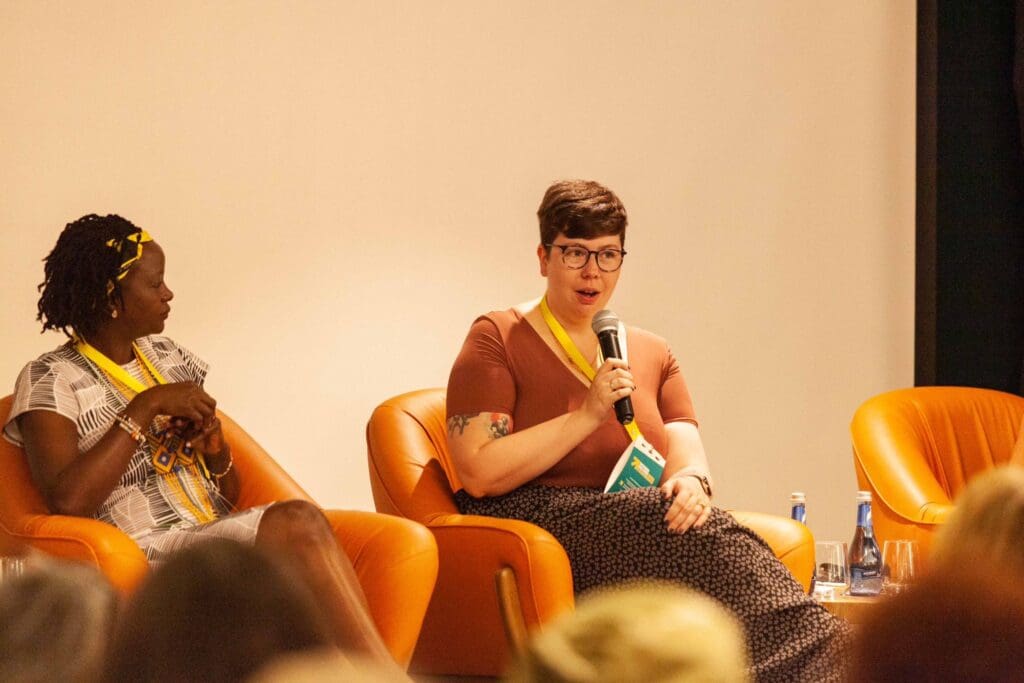Unmasking the Unseen: The Journey to End FGM/C in the United States
Posted: August 30. 2023
Some stories remain hidden beneath the surface in the mosaic of global challenges that command our attention. One such story is the existence of female genital mutilation/cutting (FGM/C) within the United States. It is essential to remove the illusion that FGM/C is confined to far away places and acknowledge its history and current impact in the U.S. This is not an immigrant issue; it’s a global and national issue that demands our collective action.

The pages of history reveal a troubling truth that defies the notion that FGM/C is a problem limited to specific communities. In the 19th century, clitoridectomies were performed in the United States under the guise of medical treatments, unraveling the concept that it’s a foreign issue. For example, “lesbianism”, masturbation, depression, hysteria, nymphomania, and other diagnoses were used as rationale to perform FGM/C on women and girls, often without their consent. As we confront the painful reality and history of FGM/C in the United States, it is crucial to acknowledge stories like Renee Bergstrom’s, a white woman form the Midwest who underwent FGM/C in 1947 as a three year old. Dr. James Burt (“The Love Surgeon“), a physician in Ohio, performed FGM/C (which he called the “surgery of love“) on hundreds of women throughout the 60s and 70s without their consent. He voluntarily gave up his practice in the 80’s after multiple women came forward with their experiences, but otherwise faced no accountability for his actions. In US vs. Nagarwala, this 2018 case centered around Dr. Jumana Nagarwala, a medical practitioner, who faced charges for performing FGM/C on young girls within the United States. Nagarwala was part of a network of medical providers who performed FGM/C on girls in the U.S. It is estimated that hundreds of girls were subjected to FGM/C in the U.S. as a result of this secret network of medical providers. The case highlighted the illicit occurrence of FGM/C within the U.S. and triggered significant legal and ethical discussions about FGM/C, children’s rights, and medical ethics. While Nagarwala’s conviction underscored a strong stance against FGM/C within the US legal system, disappointment arose when the case was eventually dismissed bringing attention to the challenges in addressing this issue within our current legal frameworks.
The journey to end FGM/C is paved with survivors’ resilience, advocates’ dedication, and legislation’s power. Various U.S. states and the federal government have enacted laws to address this issue, recognizing its urgency. These laws clearly convey that the practice has no place in our society, though we have more progress to make. There are still 9 states that are yet to pass any specific laws addressing FGM/C and many more states that need their laws strengthened and implemented to the fullest extent.
The path to eradicating FGM/C within the United States requires us to face our history unflinchingly and seize the present as a platform for change. By acknowledging our past and leveraging our collective strength, we can rewrite the narrative, ensuring that FGM/C becomes a relic of history rather than a part of our present.
Organizations like The U.S. End FGM/C Network are at the forefront of this struggle, paving the way for change within the United States. Our unwavering commitment reminds us that progress is possible, even when confronting deeply entrenched practices.
This is not a journey of a select few; it’s a call to action for each of us. Let us stand united, amplifying the voices of survivors, supporting the efforts of organizations, and demanding that FGM/C be written off the pages of our story once and for all.
